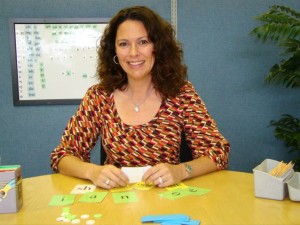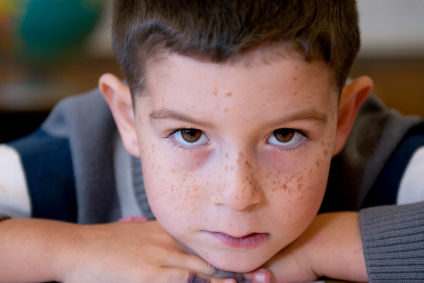
by PRIDE Reading Program Admin | Apr 12, 2015 | A PRIDE Post, Dyslexia
Parents are always asking me what they can do to help their dyslexic child. My first response is to most importantly get the child into an Orton-Gillingham program that will give them the necessary skills for reading, writing and spelling improvement. This will need to be done by a trained specialist and should be the number one priority for the dyslexic child.
Keep in mind that the trained dyslexia professional is helping your child by doing the difficult work for you. They are doing reading activities and skill training. It won’t necessarily be for fun and pleasure. So, this is the perfect time that you as a parent get to just read together with your child for fun and pleasure. This is what you the parent can do to give your child the dyslexia help at home they need.
Most likely you will be working with your child after school when they are tired and less receptive to learning and when you, too, are not at your most energetic or patient, therefore, I recommend that you read together with your child for at least thirty minutes each evening making it fun and not a chore for either of you. Evenings spent reading together build a lifelong pattern of enjoyment. A child who avoids reading is among those most in need of practice and guidance, and is especially helped by your reading aloud with him.
When reading for pleasure, allow your struggling reader to relax and listen attentively without being expected to read. You should still encourage your child to sit next to you, so he can see the pages of the book as you read. If you are helping your child with a book that must be read for school, encourage your child to participate by taking turns reading; you can ask your child to read a sentence or a paragraph, then read several paragraphs yourself, then let your child have another turn.
In books with a lot of dialogue, another technique for shared reading is to let your child take the role of one (or more) or the characters, reading the quoted words for that character. This is also a good opportunity to help your child focus on punctuation, such as quotation marks, commas, periods, exclamation points, and question marks. Many children with dyslexia do not understand what punctuation means, and they tend to ignore or disregard punctuation marks when reading because they are so focused on trying to decipher the letters and words. With oral reading, punctuation takes on added significance, as it provides information about when the reader should pause and the intonation that should be used.
When your child is reading aloud, do not interrupt to correct mistakes that do not change meaning, such as reading “mom” for “mother.” Frequent interruptions will cause your child to lose confidence and make comprehension more difficult. If your child stumbles over a word, simply tell her what it is. Do not try to use teaching techniques such as having her sound out words at this time. Instead, enjoy the story together, discuss the plot, and praise your child for her efforts when she reads aloud and is able to figure out some words on her own.
Your child may find it helpful to hold an index card or ruler under each line of text as he reads. This will help him stay focused on the text. It is also possible to purchase a reading guide with a colored filter in the center, which is designed so that your child can move it down the page as he reads.
Some children prefer fiction while others prefer nonfiction. By pairing them, your child will be exposed to both genres. Your child will also love discussing these books together with you.
Because a child with dyslexia needs very individualized and specialized reading help, I recommend that parents become the child’s biggest helper. Teaching a child with dyslexia how to read is a complex task, but with a loving touch and good humor, you the parent can most definitely accelerate your child’s progress.
Learn more about the New PRIDE Reading Program
____________________________________________________________________________________

Karina Richland, M.A. is the Founder of PRIDE Learning Centers, located in Los Angeles and Orange County. Ms. Richland is a certified reading and learning disability specialist. Ms. Richland speaks frequently to parents, teachers, and professionals on learning differences, and writes for several journals and publications. You can visit the PRIDE Learning Center website at: www.pridelearningcenter.com

by PRIDE Reading Program Admin | Feb 18, 2014 | A PRIDE Post, Dyslexia
Because dyslexia is primarily associated with difficulty in learning to read, it cannot be reliably diagnosed until your child is the age at which reading typically begins. For most children this happens around the age of six. The following are some common characteristics that may be signs of dyslexia in preschool-age children:
- Jumbling sounds of words in speech, such as saying “pasgetti” for spaghetti” or “mawn lower” for lawn mover.”
- Confusing words signifying direction in space or time, such as “up” and “down,” “in” and “out,” “yesterday” and “tomorrow.”
- Forgetting or confusing the word for known objects, such as “table” or “chair.”
- Delayed speech development.
- Unusual speech patterns, such as frequent hesitations or stammering.
- Difficulty with learning.
- Difficulty remembering and following directions.
- Difficulty learning nursery rhymes and rhyming words.
- Difficulty in learning (and remembering) names of letters.
- Enjoys being read to but shows no interest in letters or words.
- Difficulty with clapping a simple rhythm.
In most cases you will probably not be aware that your child has dyslexia until he is in first or second grade. When reading instruction begins in earnest, your child is likely to lag behind and will begin to show signs of frustration at school. After several months, you may realize that your child simply hasn’t caught on to reading in the same way as his peers. He may still have difficulty recognizing letters of the alphabet, or he may know the letters and their sounds but seem unable to put them together to form even simple words. You may notice that he seems unable to remember words that he has seen before and struggles to sound out every word he sees.
The surest sign of dyslexia is simply the fact that your child seems bright and capable at home and at play, yet he struggles with reading, writing, and spelling. School-aged children with dyslexia will exhibit many of the following symptoms:
- Confusing letters with similar appearances, such as “b” and “d” or “e” and “c.”
- Writing that contains frequent reversals, transpositions, or inversions.
- Difficult remembering common sight words, even after repeated practice.
- Stumbling, hesitating, or making mistakes or omissions when reading small, easy words like “and” or “from.”
- Spelling phonetically and inconsistently such as writing “foniks” for “phonics” or “skul” for “school.”
- Complaining of dizziness, headaches, or stomachaches while reading.
Your first indication that something is wrong may be complaints from your child’s teacher about his behavior and problems he is experiencing at school. Many behavior problems stem from the dyslexia itself; your child’s teacher may complain that he doesn’t pay attention or follow directions, or that he is slow to complete class work. These issues may be the direct result of your child’s confusion and inability to understand much of what is going on around him. Other behavior problems may be deliberate and could be an expression of his frustration and anger; he may intentionally try to disrupt the class to create distractions so as to avoid having to complete his work. He would rather be known as the class clown than the class “dummy.” He may even want to incur punishment, if punishment means being sent to sit in the hallway or principal’s office. To a child with dyslexia, such punishment can be a welcome reprieve from the torture of the classroom. Some common behavior problems that your child’s teacher may report are:
- Laziness, carelessness, or immaturity
- Daydreaming
- Disruptive behavior
- Being easily distracted
- Resistance to following directions
- Reluctance to work on assignments
If you suspect that your child has dyslexia, you will want to seek testing and a diagnosis. Diagnostic testing will help you better understand your child and may guide you to make better choices. Ideally, testing should give you a map of your child’s strong and weak points, and a set of recommendations as to how best to meet his educational needs.
_________________________________________________________________________________________________________
Karina Richland, M.A. is the Founder of PRIDE Learning Centers, located in Los Angeles and Orange County. Ms. Richland is a Certified reading and learning disability specialist. Ms. Richland speaks frequently to parents, teachers, and professionals on learning differences, and writes for several journals and publications. You can visit the PRIDE Learning Center website at: www.pridelearningcenter.com



